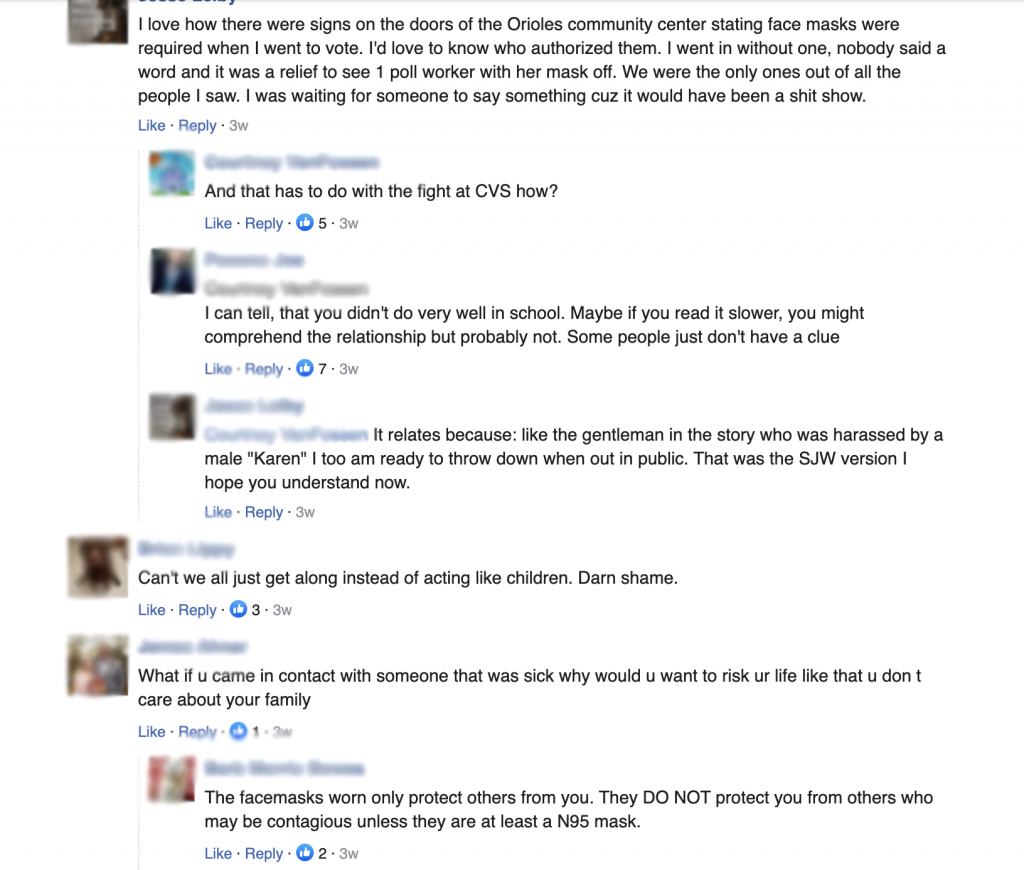Social Skills Intervention: What We Lost in the Pandemic (And How to Get It Back)
10 Jul 2020 By: Jessica Wise
Updated
As a kid, when my Mom rang the dinner bell, we came running.
I mean…she didn’t actually have a dinner bell. But, we did eat at the dinner table as a family every single night — a tradition that seems to be fading in today’s society.
Studies show that families reap huge benefits from this type of intimate interaction. In 2012, the Journal of Adolescent Health reported that “more frequent family dinners are related to fewer emotional and behavioral problems, greater emotional well-being, more trusting and helpful behaviors towards others and higher life satisfaction.” (Journal of Adolescent Health)
It’s no surprise that quality, face-to-face time has a similar impact on business relationships.
In fact, 85% of professionals feel they build stronger, more meaningful business relationships during in-person business meetings and conferences. (Team Referral Network)
85% of professionals feel they build stronger, more meaningful business relationships during in-person business meetings and conferences. Share on XOn the other hand, nearly 50% of professionals surveyed worldwide say they have lost a client or a contract because they did not have enough face-to-face meetings. (Travel Market Report)
Unfortunately, just like the sit-down dinner, traditional business communications have been on the endangered socialization list for quite some time. Since the pandemic, it seems like they’re on the fast track to extinction.
Reliance on Zoom, social media, FaceTime, instant messaging and email has put “in-person” networking, team collaboration and customer relations on the back burner.
Yes, these changes may be good for our health and safety. But, when it comes to our professional relationships, we are on a dangerous path.
Here’s how you can put the “personal” back into internal and external business communications during the pandemic. This is a social skills intervention.
Loss of Respect: People Love to Talk Virtual Smack
To wear a mask or not to wear a mask?
This controversial topic (one among many) has created divisions among the masses.
There have been protests against lockdown and declarations that being forced to wear a mask is a violation of our rights.
On the other side of the coin, people who refuse to follow guidelines are being called “selfish a**holes” for disregarding the health and safety of others.
Just take a quick glance on any social media channel or news article comments section.

It’s easy to find contentious online debates on any topic. Business owners, customers, working professionals…no one seems to shy away from blasting their opinion across the internet.
But, this behavioral phenomenon begs the following questions.
Have we all turned into keyboard warriors? Do we all just type out any outlandish thought that comes to mind and hit the “enter” key? Whatever happened to common decency?
It’s clear. We’ve lost respect for each other in every capacity.
How to Put R.E.S.P.E.C.T. Back into the O.F.F.I.C.E.
Let’s be honest. We’re all a bit braver when hiding behind a screen.
Maybe it’s because the consequences of our words aren’t as immediate. Or maybe it’s because we can’t see or hear the recipient’s reaction.
But, whether typed in an email or through a live chat system, that doesn’t mean our words don’t have an impact.
Team Communications
Due to recent events, we’re all under an enormous amount of stress. However, as we work remotely and interact with customers virtually, it’s all the more important to be mindful of how we express ourselves.

Remember, professionals are and should be held to a much higher standard.
“Before you pull up your soapbox, you should be aware that in most cases, free speech in the workplace is limited or non-existent when it comes to controversial movements or topics,” said Rosalinda Oropeza Randall, an etiquette and civility expert and author of “Don’t Burp in the Boardroom.” (Business Insider)
Keep work about work, and implement policies so it remains as such. Politics and social issues have no place in the boardroom.
External Communications
The same rules apply when you’re communicating with customers.
Yes, you may know a customer’s purchase history and address. But, that doesn’t mean you know their religious, ethnic, political, economic or social background.
All it takes is one vague political reference or off-color joke to leave a bad taste in a customer’s mouth. Once you make that mistake, there is a good chance he or she is never coming back.
After one negative experience, 51% of customers will never do business with a company again. @HelpScout Share on XAfter one negative experience, 51% of customers will never do business with a company again. (HelpScout)
So, think BEFORE you type. Reread BEFORE you hit send. And, never say anything to a customer or colleague that you wouldn’t say to them in person.
Everyone has different values and beliefs and you never know who you might offend unintentionally.
Loss of Genuine Connection: This Isn’t McDonald’s
“Welcome to McDonald’s. How may I take your order?”
That greeting doesn’t exactly make you feel like the Queen of England, does it?
Quick “Good mornings” and rushed “How may I help yous” have pretty much the same effect. Let’s face it. This type of interaction makes a person feel like just another face in the crowd.
Under normal circumstances, these general niceties barely cut it. But, now that we’re forced to be socially distant from each other, people are craving a social skills intervention more than ever.
It’s human nature to want to feel recognized and important, and personalization will leave the people you do business with feeling like kings and queens — even if you’re talking to them from behind a screen.
Make ‘Em Feel Like That “Special Someone”
Personalization will help you forge more meaningful relationships with your customers.
A whopping 98% of marketers say that personalization has advanced their customer relationships. (Evergage) Experts attribute this success to consumers feeling more connected and appreciated with each individually tailored interaction they experience.
98% of marketers say that personalization has advanced their customer relationships. @Evergage Share on XAs internal customers (That’s right. Employees are customers, too.), employees across the globe have the same sentiments on personalization. They want to be seen, heard and recognized as individuals.
When surveyed, 58% of workers said leaders could do more to improve employee engagement by simply giving more recognition. (TinyPulse)
What it comes down to is that everyone needs a bit more attention, especially now that our business relationships have turned into long distance affairs.
Here’s how you can make ALL of your “customers.” feel like they’re your one and only, even from afar.
Internal Personalization
No matter where they are, follow up with your employees regularly.
43% of highly engaged employees receive feedback at least once a week. (The Muse) So, carve out 10 minutes once a week to touch base with each team member.
Additionally, make it a point to acknowledge their professional and personal milestones.

“Daily greetings and regular check-ins over shared communication channels are effective ways to acknowledge remote employees, but the biggest impact comes from celebrating contributions and achievements with specific, purposeful feedback and recognition,” say the experts at Slack, a proprietary business communication platform.
If you have a sizable staff this may seem daunting, but there are small things you can do to make personal interactions breeze
Set calendar reminders to keep track of birthdays and work anniversaries. You may not be able to celebrate in person. But, there’s always Zoom parties!
You should also make it a point to acknowledge one employee each month that’s made noticeable efforts. Publicly acknowledge that team member’s hard work. Then, reward him or her with an extra vacation day or a Visa gift card.
You may think this is a lot of extra hoop jumping but a little support and recognition goes a long way. 69% of employees say they’ll work harder if they are better appreciated (smarp)
External Personalization
Maybe I’m stating the obvious here. But, one of the best ways to personalize the customer experience is to be there for your customers when they need you.
The more accessible you make yourself the more satisfied they’ll be.
Unfortunately, in recent months, being physically “available” to customers has become difficult. COVID-19 forced many businesses to close their doors, and even though the country is slowly reopening, many Americans choose to remain in their homes out of fear.
Before a second wave hits us, now is the time to establish a communication channel that will allow you to serve your customers remotely. That means investing in a 24/7 live chat service.

According to research by Forrester, 44% of online consumers say that having questions answered by a live person while in the middle of an online purchase is one of the most important features a website can offer.
And, you can really pack a personalization punch by integrating your live chat software with a customer relationship management (CRM) system. A CRM will collect and store your online customers’ contact information and purchase history in a centralized location.
By providing your live chat agents with a singular view of each customer, they will be able to treat each website visitor as an individual.
And that, my friends, is priceless.
84% of consumers say being treated like a person, not a number, is very important to winning their business. (Salesforce) With a CRM-live chat tag team, you’ll knock their socks off.
A Social Skills Intervention by Connection
There is a common thread that can be traced through each of the above points. It’s also a general rule that should be followed by everyone.
That rule is to stay connected in a respectful, yet meaningful way.
Not only will your employees and your customers benefit from a free flow of positive, open communication. But, you’ll benefit from it as well.
#1: Your staff will become more efficient. Employee productivity increases by 20 to 25% in organizations where employees are connected (Smarp)
#2: Your customers will be happier and more pleasant to do business with. 53% of people said unclear communication was the biggest issue preventing them from having a good customer service experience. (Tolero Solutions)
So, use the tools you have at your disposal to stay connected with your staff and your customers.
Otherwise, we’ll all just be lost in translation.


